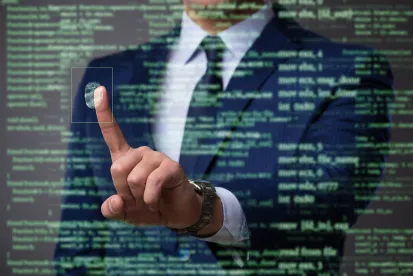Imagine if a doctor could diagnose and treat an illness immediately after a quick non-invasive scan of your whole body. Does this sound like something out of the science fiction TV show Star Trek? Or imagine the prevention of a serious illness because you or your health care provider notice subtle changes in one or more of your biomarkers, the biological molecules found in your body that indicate a normal or abnormal process, or a disease condition. Could a whole body scan completed within a matter of minutes help make the prevention, earlier diagnosis, and precise treatment of illness a reality? QBio, a US start-up, is reportedly on a mission to develop technology that will do just that. Their platform is focused on capturing and monitoring baseline patient health from information on current health and personal risks collected through its 15-minute whole body scan, in a virtual model called a digital twin.
“’A digital twin is a virtual representation of an object or system that spans its lifecycle, is updated from real-time data, and uses simulation, machine learning and reasoning to help decision-making.’ . . . In plain English, this just means creating a highly complex virtual model that is the exact counterpart (or twin) of a physical thing.” (Armstrong, 2020) Digital twins are already used in a wide range of applications including power generation, product design, manufacturing processes, vehicle performance, urban planning, and the tracking of health indicators and generation of key insights in health care services. QBio’s Gemini Digital Twin platform is one of several projects underway to encourage the health care industry to adopt digital twins “to customize medical treatments to individuals based on their unique genetic makeup, anatomy, behavior and other factors”. The scanner developed by QBio will look at structural change, and correlate that with genetic risks and chemical risks that have been collected from more traditional tests.
The use of digital twins in health care involves the collection of highly confidential material including medical records, genetic data, and other biomarker information. When asked about ownership of patient data, Jeff Kaditz, QBio’s CEO, has stated: “I don’t think anybody should own information about your body besides you, especially when you’re paying for it.” No matter how they are used, digital twins are virtual replicas stored in cyberspace. Therefore, they require security technology to ensure privacy, reliability, and integrity. The Health Insurance Portability and Accountability Act (HIPAA) Privacy Rule “standards address the use and disclosure of individuals’ health information (known as ‘protected health information’) by entities subject to the Privacy Rule.” Entities covered by the Privacy Rule include health care providers, health plans (except a “group health plan with fewer than 50 participants that is administered solely by the employer that established and maintains the plan”), health care clearinghouses, and business associates. The HIPAA Security Rule protects a subset of the information covered by the Privacy Rule. This information, called electronic protected health information (e-PHI), includes “all individually identifiable health information a covered entity creates, receives, maintains, or transmits in electronic form.” The Security Rule requires that all covered entities “ensure the confidentiality” of all electronic protected health information and “detect and safeguard against anticipated threats to the security of the information.” It seems that many potential advances in technology and health care are on the horizon. Information security advances need to be developed in tandem; no one wants to see health information disclosed.



 />i
/>i
